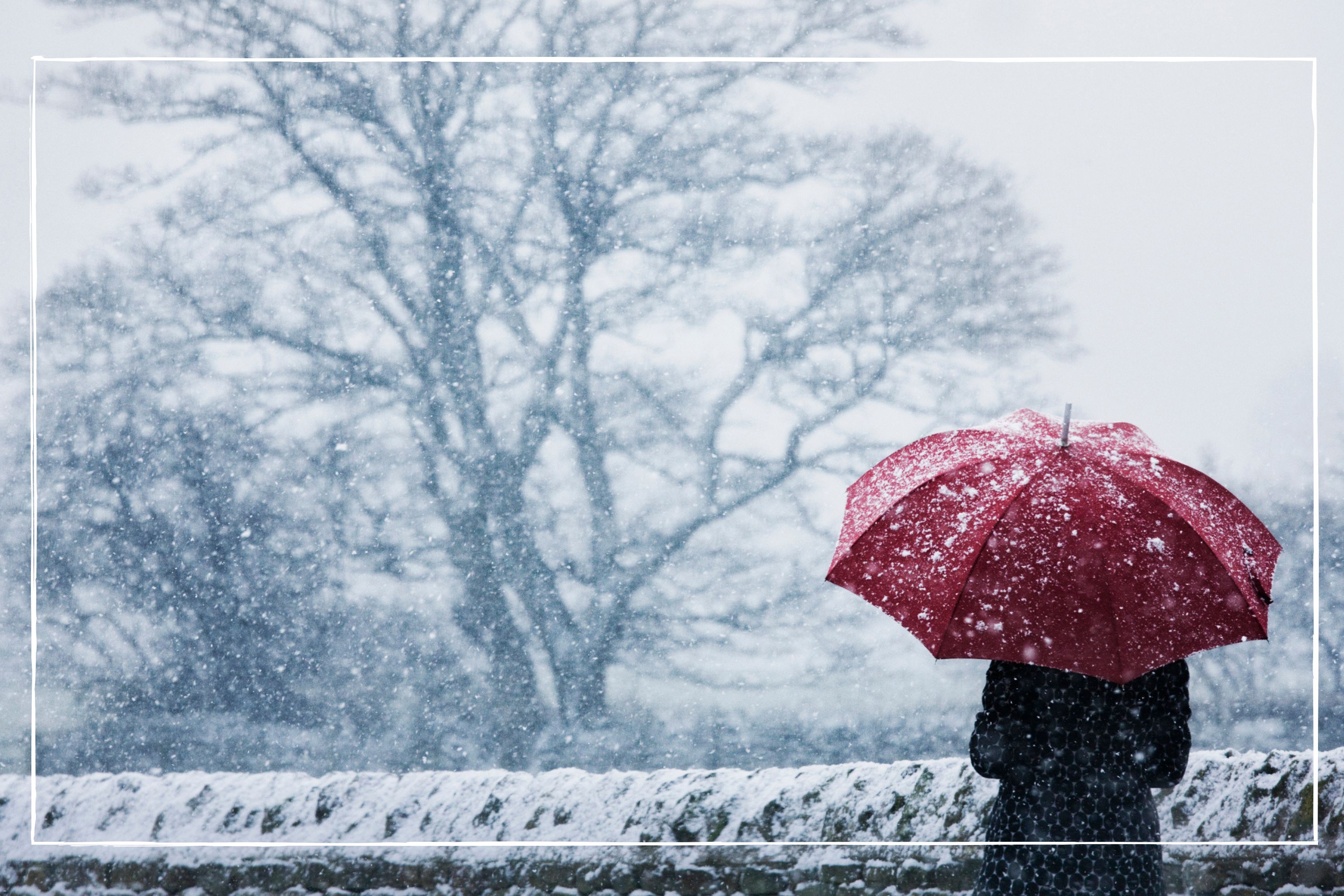
Parenting advice, hot topics, best buys and family finance tips delivered straight to your inbox.
You are now subscribed
Your newsletter sign-up was successful
With temperatures dropping across the UK and families wondering if it will snow in the UK this year, thousands of households are eligible for the Cold Weather Payment. But how do you find out if you’re eligible and how much cash you can get?
The Met Office and UK Health Security Agency have warned that all regions of England will experience ‘severe cold weather’ in the coming days. Cold and icy conditions mean more people will be putting their central heating on, or turning up thermostat, in order to keep themselves and their home warm. (Find out how many hours a day your heating should be on, with our handy guide).
The Cold Weather Payment Scheme is a government scheme designed to help people in England and Wales pay for their heating during periods of particularly cold weather. A separate scheme is in operation in Scotland.
Finance expert, Kevin Mountford, who is also co-founder and savings expert at Raisin UK, says: “With temperatures reaching as low as -12ºC in some parts of the UK, there was huge concern around the health of vulnerable people who may not be able to afford heating, so the Cold Weather Payment is so important in supporting those residents. Gas and electricity prices are remaining high, and this support can be so crucial in lowering heating costs overnight and supporting low-income residents in the difficult decision to heat or eat.”
“But, with the cold weather lasting numerous nights, there are some concerns about how far the Cold Weather Payment will last. With numerous nights of sub-zero temperatures, we will see that the Cold Weather Payment does not stretch far enough.”
How much is the Cold Weather Payment?
The Cold Weather Payment is £25 for each week when the average temperature in your area is recorded as, or forecast to be, 0ºC or below. The payment is a flat rate and everyone gets the same. You don’t have to pay this money back, nor does it affect your other benefits.
The scheme runs for five months, from 1 November 2022 to 31 March 2023. The £25 payment is per week, so if temperatures average at zero degrees for four weeks in this time period, you could pocket £100 if you are eligible.
Parenting advice, hot topics, best buys and family finance tips delivered straight to your inbox.
Eligible households don’t have to apply for the Cold Weather Payment. The money will be paid directly into bank and building society accounts within 14 days of the period of cold weather.
Who is eligible for the Cold Weather Payment?
You will be eligible for the Cold Weather Payment if you live in England and Wales and receive certain benefits or support for mortgage interest (SMI).
You may get Cold Weather Payments if you receive:
- Income support
- Income-based jobseeker's allowance
- Income-related employment and support allowance
- Pension credit
- Support for mortgage interest
- Universal Credit.
Independent financial adviser, Samuel Mather-Holgate, from Mather and Murray Financial, says: “If you’re in receipt of means tested benefits like Income Support and Pension Credit you’ll probably be entitled to it and, if you are, payments will be automatic.
“With inflation staying high, caused mainly by energy bills, these payments will make a huge difference to those on the lowest incomes. It’s a shame the government haven’t gone further, considering just how high fuel bills are and the greater proportion of income that they take up for those on low incomes.”
Can I get the Cold Weather Payment in Scotland?
You can’t get the Cold Weather Payment if you live in Scotland. The payment has been replaced by the Winter Heating Payment.
This scheme is designed to help people on low income benefits who might have extra heating needs during the winter period. Social Security Scotland pays this to people living in Scotland and it has the same eligibility requirements as the Cold Weather Payment in England and Wales.
Unlike the Cold Weather Payment, the Winter Heating Payment does not depend on how cold the temperature gets – it’s an annual payment of £50 that’s paid automatically. Payments for this winter are expected to be made from February 2023.
How cold does it have to be to get the Cold Weather Payment?
The Cold Weather Payment is paid if the average temperature in your area is recorded as, or forecast to be, 0ºC or below over seven consecutive days. You can check if homes in your area are eligible for the cash by using the Government's postcode checker tool.
So far, payments have been triggered in parts of Cumbria, North East and North West England, West Yorkshire, Greater Manchester, Birmingham, Coventry, Staffordshire, Brecon, Powys and Woburn.
The Met Office has forecast below-average temperatures in many places into next week.
What if I don’t receive the money?
If you think you should have received a Cold Weather Payment but it hasn’t arrived, contact your pension centre or the Job Centre.
If you receive Universal Credit, you can ring the Universal Credit helpline on 0800 328 9344.
What other help can I get with energy bills?
All households in England, Scotland and Wales who pay for their energy are eligible for the £400 energy rebate. This is paid by a payment of £66 or £67 each month from October 2022 to March 2023, which will either be a discount on your energy bill or a credit to your bank account.
The Warm Home Discount scheme offers eligible households £150 off their electricity bills for winter 2022/23. The money is not paid to recipients – instead it’s a one-off discount on electricity bills between October 2022 and March 2023. To be eligible you need to either get the Guarantee Credit element of Pension Credit or be on a low income.
If you’re struggling to pay your energy bills during this cold snap, talk to your energy supplier. They are obliged to help you find an affordable way to pay and most energy providers also have grant and hardship schemes.

Emma Lunn is a multi-award-winning journalist who specialises in personal finance and consumer issues. With more than 18 years of experience in personal finance, Emma has covered topics including all aspects of energy - from the energy price cap to prepayment meter tricks, as well as mortgages, banking, debt, budgeting, broadband, pensions and investments. Emma’s one of the most prolific freelance personal finance journalists with a back catalogue of work in newspapers such as The Guardian, The Independent, The Daily Telegraph, the Mail on Sunday and the Mirror.
